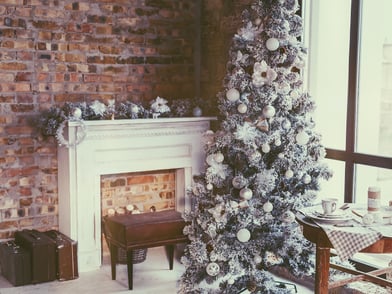 When you live in a historic brick home, space is often at a premium. With smaller footprints, compact lot sizes, and regulations governing additions, expanding outwards often isn’t an option. Instead, turning an unfinished basement into a functional living area can be a practical solution for increasing living space. Renovating your historic brick basement adds much-needed square footage and can increase the value of your home, especially in high-demand areas like Washington, D.C. Consulting with architects and specialists in historic brick homes is a critical step in the process to ensure your basement renovation is well-executed and long-lasting.
When you live in a historic brick home, space is often at a premium. With smaller footprints, compact lot sizes, and regulations governing additions, expanding outwards often isn’t an option. Instead, turning an unfinished basement into a functional living area can be a practical solution for increasing living space. Renovating your historic brick basement adds much-needed square footage and can increase the value of your home, especially in high-demand areas like Washington, D.C. Consulting with architects and specialists in historic brick homes is a critical step in the process to ensure your basement renovation is well-executed and long-lasting.
Consulting with an Expert who Understands Historic Homes
When planning a renovation, the vast array of building codes, preservation guidelines, engineering concerns and necessary permits can quickly overwhelm a homeowner. One of the first steps in your basement conversion project should be consulting with an architect who specializes in historic homes and renovations. Historic homes pose unique challenges, and enlisting experts who understand the requirements of working with older structures will ensure you achieve a space that meets your needs and maintains the historical integrity of your home. A bonus of working with an expert is that they see the potential in spaces that homeowners may overlook. This can result in functional and aesthetic choices that add a real “wow” factor to your renovation and potentially provide a multi-use space that accommodates a variety of activities.
Assessing the Condition of Your Basement Walls
Whether your vision is exposed brick walls or finished drywall, it’s essential to assess the condition of your basement’s interior masonry or stone walls before construction begins. The structural integrity of your foundation is paramount, and you will need to ensure that your below-grade masonry is in good condition. Fixing small problems now will prevent future issues that could jeopardize your investment and require expensive repairs.

One of the most significant concerns in any basement renovation is water infiltration. Water can seep through cracks in mortar joints and lead to dampness, leaks and mold. Addressing these water issues before any alterations begin protects your living space and ensures the overall stability of your foundation. Solutions range from tuckpointing to alternate interior and exterior water mitigation strategies, such as French drains and waterproofing membranes.
Your architectural expert will also ensure there are no cracks, crumbling or bulges in the foundation walls. An experienced specialist will know how to repair your brick or stone using traditional methods and materials that are compatible with the existing structure, ensuring it will be long-lasting and historically accurate.
The Importance of Proper Planning
Whether you are creating a cozy family room, a sleek home office, or a guest suite, the key to a successful basement conversion lies in the details. Transforming your unfinished basement into a valuable living space requires careful planning and consideration to achieve a beautiful and functional space. By addressing the condition of your basement walls and consulting with experts who specialize in historic homes, you can be sure that your renovation will be successful.
Contact Renaissance Development for a consultation and get the information you need for a smooth renovation process that will add long-lasting value to your property for years to come. Ask about our Fall Promotion which offers 15% off our expert Tuckpointing services.
Tags:
Historic Brick Home DC, Basement Water Damage, Brick Basement, Historic Home Renovations, Basement Renovation, Basement Space DC9/12/24 8:30 AM


